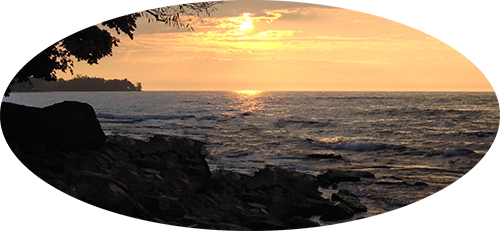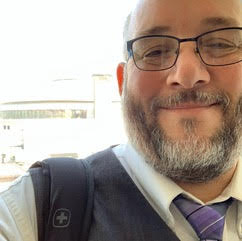Independence Day Questions and What Does It Mean To Be American
Intentions for the fourth
Two days ago it was July 4th, Independence Day in the United States; that day that America rebelled against England and won its independence—as the story goes. What often goes ignored unintentionally or willfully is the effect it had on others throughout American culture and history.
You will note that the voices of Indigenous Nations, or tribes as they are often dismissively called are largely absent or neglected from this joyous holiday—even though many Indigenous peoples fought and died for the colonials and rebels in the war of independence on both sides—because both the rebels and colonials were in fact colonizers in the first place. Within on generation of the revolution of freedom, the Indigenous peoples east of the Mississippi found themselves under forced removal from their traditional lands, in spite of legally-binding treaties, Supreme Court rulings, and even the Constitution itself.
My original intention for a post yesterday had been to once again highlight other actual talks from America’s history that underscore that Independence day was not celebratory for all Americans. Though scores of others throughout world history would model throwing off the yoke of oppression largely based upon “America’s break-up with England” or the as some recently call it in the light of the exit of England from the European Union—the “first Brexit.” There remains a “hmm,” approach to how I handle this holiday.
Quite honestly, I am rather indifferent to many American holidays. For most Americans it means parades, fireworks, feasts, consumption of alcohol, but most importantly a day off from work. Sadly, the snarky and sarcastic talk shows will highlight how little history Americans (especially younger Americans) actually know about their own culture and history. But I dare say a lot of Americans could learn more about the actual history that occurred rather than the mythologized one of freedom, independence, and celebrations of diversity. Am I painting with broad strokes, and fully aware a great number of Americans do actually know their own history: the good, the bad, and the ugly? Of course! I know I am painting with broad strokes—but I do so to provoke questions, and hopefully dialogue as is the primary goal—as I have often done with my classes.
A number of semesters ago, while teaching an Introduction to American Studies, I was intrigued, and flustered by student’s reactions to the following readings. I used both William Apess’s “Eulogy of Metacomb (King Philip)” from 1836 and Fredrick Douglas’ “What to the Slave is the Fourth of July” on July 5th, 1852. Both are very powerful pieces of contemplation about what it means to be American from people of color. In Richard Horwitz’s book, “The American Studies Anthology,” there are several chapters dedicated to contemplations similar to Douglas and Apess; such as Crevecoeur’s “Letters from an American Farmer”—contemplating what it means to be an American. Or, Stanton’s reading of “Declaration of Sentiments and Resolutions” in 1848 that sought redress for the inclusion of women in American culture. Many of the students did not what to make of these readings—and had a difficult time assessing the main arguments and how the applied to being American today. But that’s what I try to do, raise questions and have conversations about our shared history. History is more nuanced than victors and vanquished, heroes and subjects, colonization and conquest.
A small digression
Another reason for that I do not care for fireworks is my dog Copper. I adopted Copper from a colleague whose mother had passed away. Copper was her dog, and my colleague could not take Copper in—so after some training difficulties, Copper eventually settled into my home. Bodhi took to him, in spite of it being just Bodhi and I all of his life—at that point about five years. Bodhi had never feared loud noises, be it thunder or fireworks. Occasionally he’d raise his head, tilt it, and settle back in for the night—but only for exceptionally loud booms of thunder.
That all changed one night during a thunderstorm. Copper I had realized did not like loud noise—a neighbor’s kid setting off fireworks the next block over sent Copper into my lap, drooling like a leaky faucet, and trembling to boot. One night I grew two furry lapdogs—a terrified Copper and a perplexed Bodhi. As the thunderstorm really got rolling, Bodhi looked toward the ceiling and sky, looked at Copper, looked again at the ceiling and began to tremble and shake himself. It seemed like Bodhi had never known that he was supposed to fear thunder, until Copper had showed him how to fear the thunder and loud noises. It occurred to me that dogs, like humans learn to fear, I’m not sure we’re born knowing how to fear the natural world or each other.
This year I won, the television and fans were making enough white noise that only the occasional firework was loud enough to hear and thus fear. Copper still settled into my lap, but no trembling and drooling. Chloe was a champ throughout the whole fourth of July fireworks—merely sleeping in her favorite chair—only occasionally casting a sideways glance at Copper and I, I suspect to make sure we were still on the sofa.
The Connections
I am guessing you’re probably wondering why I connected these two disparate positions as my first post back. I had lofty goals of incorporating a declaration of independence from procrastination. I had quip-filled rhetoric about how I would embrace my freedom to write more concisely and often. After all it has only been 259 days since my last post on this blog.
But, I realized I have struggled to write for a variety of reasons, including life, busyness, and the fact that it takes me so long to compose my thoughts and express them in writing. Then there is editing and reviewing. Add in an attempt to have someone else read the materials—and in my estimation, too much time has passed for my entry to be relevant any longer. This is part of the problem with instantaneous news “as it happens,” a shortened attention-span, and an air of entitlement that demands instant feedback and gratification in ever-connected modern society. But another part of my hesitancy is that I often feel discouraged in the modern world.
I am disheartened over political rhetoric and insincerity. I am disgusted by the ugliness that has become too acceptable or common-place in this day and age. I have grown weary of the open hostility and childish name-calling bantered about social media and the news these days—as though it were somehow righteous. I am discouraged and angry by the fact somehow it has become normal to bear witness to horrific acts of violence, offer prayers and thoughts—nothing changes—until the next tragedy—when more lip service is offered up in the wake of a tragedy. I have read with a growing sense of dismay and confusion how people post points of view rather than finding commonality and humanity then proceed to spout off one-upsmanship stances over these tragedies—about who historically bore the worst atrocities in this country or has suffered the longest.
But then the common link for me is in the fact that many have embraced a distorted history of this country and culture. Far too many people seem to attempt to do and say anything for their fleeting moments of fame and notoriety. I wish I could say this was confined to handfuls of people in this culture—but even our politicians have engaged ludicrous debates over the size of hands and manliness as though it were somehow noble talk and speech. I have watched increasing comparisons between history’s worst dictators and their rise to power with modern politicians whose power seems to cause a sort of insanity for simply disagreeing with one another. Yet, many continue to wring their hands rather than speak truth to power—realized or imagined.
When we combine a lack of understanding of one’s own history and thoughtful discourse. When we refuse to call out outlandish lies and fear mongering and allow some in the media promote what amounts to propaganda. When we allow elected officials to avoid the constitutional duties and obligations as public servants of the people, for the people, and by the people. When we refuse to acknowledge, let alone see the humanity in one another. One has to wonder what we were celebrating independence from or for? How about we try a declaration of independence from fear of one another or difference in culture, religion, economic-class, or ethnicity?
Because I realized fear is a learned behavior. Fear is taught and embraced on too many levels today. We can spout off clichéd rhetoric like the differences that divide us are far smaller than the similarities that unite us. That only works if both sides believe that and work towards what has become a bad word in our society—compromise.
There was a reason that FDR’s famous speech included the freedom from fear. There is a reason that the Great Law of the Iroquois deals with freeing ourselves from fear and the insanity of grief through condolence and seeking to find the humanity in one another again. Because as Amaryllis Fox, whose video went viral, explained we need to listen to one another because–everyone believes they are the good guy. I still prefer the writings of Seneca scholar and friend John Mohawk in the “Warriors who turned to Peace.” Mohawk’s essay is a great synopsis of the foundational principles of the Great Law that united the Iroquois into a powerful confederacy from warring tribes who delighted in the chaos and insanity of war and suffering. But I will conclude with a question that I ask my classes almost every semester.
What does it mean to be an American? Why then do we demand conformity that “others” become American—when most Americans struggle to define what it truly means to be American in the first place?













